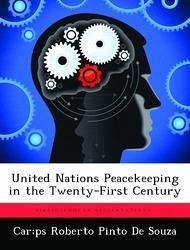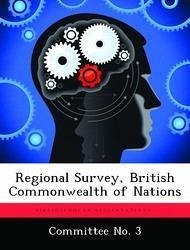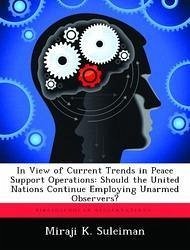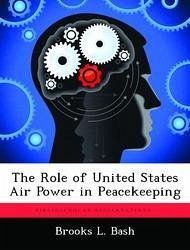Nicht lieferbar
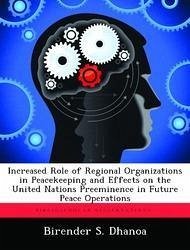
Increased Role of Regional Organizations in Peacekeeping and Effects on the United Nations Preeminence in Future Peace Operations
Versandkostenfrei!
Nicht lieferbar
Regional Organizations have played an increasing role of late in resolving intrastate conflicts. The UN, drawn into a plethora of peacekeeping operations in the 1990s, has relied increasingly on regional organizations and alliances to take the lead in conflict resolution, especially for peace enforcement. In view of this, the primary research question is: Has the increased role of regional organizations and alliances in recent UN mandated peace operations, such as East Timor, Sierra Leone, and Kosovo, defined the path for the future conduct of such operations? A follow on question is: Will it ...
Regional Organizations have played an increasing role of late in resolving intrastate conflicts. The UN, drawn into a plethora of peacekeeping operations in the 1990s, has relied increasingly on regional organizations and alliances to take the lead in conflict resolution, especially for peace enforcement. In view of this, the primary research question is: Has the increased role of regional organizations and alliances in recent UN mandated peace operations, such as East Timor, Sierra Leone, and Kosovo, defined the path for the future conduct of such operations? A follow on question is: Will it lead to a decline in UN preeminence in future peace operations? The thesis first describes the new ground rules in international affairs since the end of the Cold War. They have changed the way the UN undertook peacekeeping operations in the past decade with regional organizations. Second, it undertakes an analysis of the military component of three UN peace operations involving regional forces, in Sierra Leone, East Timor, and Kosovo. Finally, it derives conclusions from the analysis of these operations. While the degree of involvement of regional organizations in current peace operations is shaped by the nature of the conflict, the UN remains a key player and its role, as the primary arbiter of international peace and security does not seem under threat in the near future. This work has been selected by scholars as being culturally important, and is part of the knowledge base of civilization as we know it. This work was reproduced from the original artifact, and remains as true to the original work as possible. Therefore, you will see the original copyright references, library stamps (as most of these works have been housed in our most important libraries around the world), and other notations in the work. This work is in the public domain in the United States of America, and possibly other nations. Within the United States, you may freely copy and distribute this work, as no entity (individual or corporate) has a copyright on the body of the work. As a reproduction of a historical artifact, this work may contain missing or blurred pages, poor pictures, errant marks, etc. Scholars believe, and we concur, that this work is important enough to be preserved, reproduced, and made generally available to the public. We appreciate your support of the preservation process, and thank you for being an important part of keeping this knowledge alive and relevant.




